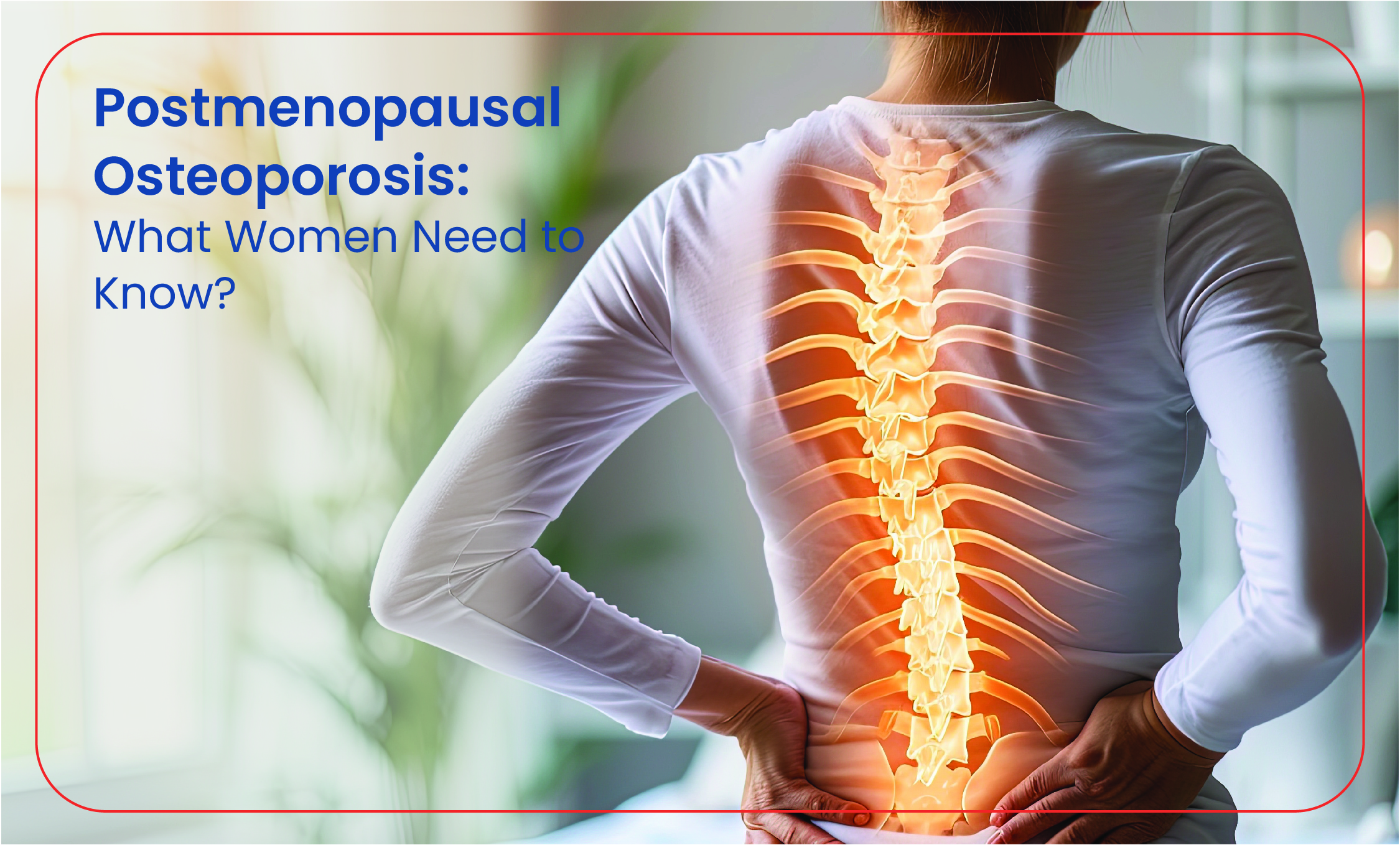
Menopause is a natural part of aging, but it often comes with changes that many women aren’t fully prepared for. One of the most serious and silent conditions associated with this stage is osteoporosis—a disease that weakens bones and makes them more likely to break.
For women after menopause, the risk of developing osteoporosis increases significantly. But the condition doesn’t have to be a life sentence. With awareness, early action, and lifestyle care, it can be managed effectively.
What every woman should know about postmenopausal osteoporosis- especially if you’re managing diabetes or hormonal conditions. As Dr. Shreya Sharma, best diabetes specialist in Dehradun and well know endocrinologist in Uttarakhand, often says, “Bone health is not separate from the rest of your body. Everything is connected-especially your hormones.”
Osteoporosis literally means “porous bones”. It is condition where bones lose density and become fragile, increasing the chances of fractures. Most people don’t feel their bones weakening, so the disease often remains unnoticed until something breaks.
What makes postmenopausal osteoporosis unique is the sharp decline in estrogen levels. Estrogen is a hormone that plays a crucial role in maintaining bone strength. Once it drops- typically around menopause-bones start losing their density at a faster rate.
Estrogen acts as a protective shield for your bones. When this hormone dips after menopause, your bones begin to thin more rapidly. Women can lose up to 20% of their bone density in the five or seven years after menopause.
This doesn’t mean every woman will experience the same degree of bone loss. But it does highlight the need for paying attention to bone health during and after this transition.
Dr. Shreya Sharma, known for her work as the best endocrinologist in Uttarakhand, emphasizes that understanding your hormonal health is the first step in protecting your bones.
Osteoporosis is often called the “silent disease” because it doesn’t cause symptoms until a bone breaks. But some early indicators can help you spot potential problems:
Even if you feel healthy, these subtle signs shouldn’t be ignored. Regular checkups—especially with an expert like Dr. Shreya Sharma, a respected diabetologist in Dehradun—can help catch osteoporosis early, before a break happens.
While every woman after menopause is at some risk, certain factors increase your chances of developing osteoporosis:
Many women with diabetes are unaware of the connection between blood sugar and bone health. Elevated blood sugar can interfere with the way bones rebuild themselves. That’s why endocrinologists like Dr. Shreya Sharma, who specializes in both diabetes and hormone health, are essential in guiding women through this stage of life.
If you're postmenopausal and concerned about your bone health, your doctor may suggest a bone density test. This test is simple, non-invasive, and gives you a clear picture of your bone strength.
In addition to this, your overall hormonal profile—including estrogen, thyroid hormones, and blood sugar levels—can offer important clues. A comprehensive evaluation by an experienced specialist like Dr. Shreya Sharma, best diabetes specialist in Dehradun, ensures that nothing is overlooked.
While osteoporosis and diabetes might seem unrelated, they’re more connected than most women realize. Research shows that women with type 2 diabetes are at increased risk of fractures—even if their bone density seems normal.
High blood sugar levels can:
Because diabetes affects more than just your blood sugar, managing it with an endocrinologist who understands these complexities—like Dr. Shreya Sharma—can make a big difference.
The good news? There’s a lot you can do to strengthen your bones—even after menopause. Small changes in your routine can protect your bones for years to come.
Living with osteoporosis doesn’t just affect your body—it can impact your confidence, independence, and emotional health too.
Many women feel anxious about falling or getting hurt. Some may even avoid social outings or physical activity altogether. That’s why supportive care from empathetic doctors like Dr. Shreya Sharma, who sees the whole picture—not just test results—is so important.
Empowerment starts with understanding. Once you know the risks, you can take steps to protect yourself and live fully.
Postmenopausal osteoporosis is common, but it’s not inevitable. With the right lifestyle changes, routine checkups, and expert guidance, you can stay strong and active for years to come. If you’re going through menopause, living with diabetes, or simply want to protect your bones, don’t wait for a fracture to take action.
Get evaluated by Dr. Shreya Sharma, the best diabetes specialist in Dehradun, top endocrinologist in Uttarakhand, and trusted Hormone doctor in Dehradun. She combines medical expertise with compassionate care to help you age with strength, energy, and confidence.
Take control of your bone health—because strong women deserve strong bones.